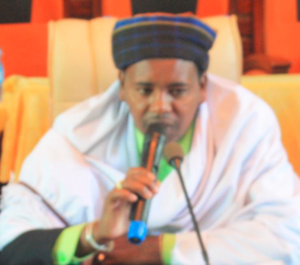
Pastoral lands in Ethiopia are being put under increasing pressure due to the ever-growing number of people and limited feed resource for the livestock as well as allocation of land to non-pastoral uses. Encroachment and illegal alienation of pastoral communal lands along with the weakening of customary governance are cited as major causes leading to misuse of rangelands and their degradation.
The Ethiopian government took an important step in recognizing pastoralists’ right to free land for grazing and cultivation and not to be displaced from their own lands in the 1995 Constitution. While this is essential to secure pastoralists’ land rights, the realization of the broad legal framework on the ground requires additional legal and institutional arrangements that are participatory and inclusive.
As part of its effort to strengthen community land rights in pastoral areas, LAND commissioned a study entitled “Assessment of Customary Land Administration and Natural Resource Management in the Pastoral Areas of the Oromia Regional State” which was conducted by the Institute of Pastoral Studies of Haramaya University (IPAS/HU).
The decision to conduct the study was made in recognition of the role of customary land administration and natural resource management in the pastoral areas as an important input for developing a system for securing pastoral land use rights and ensuring inclusive and sustainable use of pastoral land.

(traditional leader) of the Boran Community, said: “Pastoralists have secured and sustained their natural resources through their strong tradition by assigning responsible persons for their management.”
The field study, conducted among three pastoral groups located in East Shewa, West Hararghe, and Bale zones of Oromia National Regional State complemented with the desk study conducted regarding the Borana and Guji pastoralists, provides useful information on the organization and operation of the customary institutions that are used to manage the rangelands and their natural resources and the practices and rules and regulations they administer.
Findings of the study reveal that there is variation in the existing organizational structure and operational status of the institutions across the pastoral groups studied. While the customary institutions of the Borana, Guji and Karrayu pastoralists are still strong, those of the Bale and Itu pastoralists have been weakened as a result of decentralization of the formal local government administration. It also shows that the definition and enforcement of rights to resources by customary authorities among the Bale and Itu pastoralists have become very general through time and the authorities are not in a position to regularly monitor whether or not they are effectively enforced to prove efficiency in resource use and management.
Aman Muda, Deputy Head of Oromia Rural Lands and Environmental Protection, said, “The study was very useful to look at the customary practices of managing land and other natural resources in pastoral areas. This helps us to understand the interests of communities in managing rangelands and other resources and better implement the land certification process. The study is also timely, as pastoral communities are demanding official certification for their land use rights.”
“The findings will help us strengthen the customary practices for efficient and effective management of land and natural resources in these areas. Based on the recommendations of the study, we started engaging communities in discussing better ways of handling the certification process. I believe this study also benefits us to look at better ways of identifying land for different purposes carefully in consideration of the interests of the communities as well as its potential and preventing encroachment of land,” Aman added.
According to the study, as the formal governance structure extends into the pastoral system, the long-lived customary territorial organization and management of the rangeland resources and traditional administrative units have been overlaid by the formal administrative structures. The overlap of these boundaries increases the risk of conflict and undermines the chance of an internal cooperative relationship.
“Pastoralists have secured and sustained their natural resources through their strong tradition by assigning responsible persons for their management,” said Abba Gada Guyo Goba, Chief Aba Gada (customary leader) of the Boran Community. “The formal and informal structures very much support each other. The tradition that has existed long before the formal institution has nothing to contradict it, but complement each other on a number of issues. But a wider level discussion and awareness-raising is important since everyone here does not have an equal understanding of pastoral land use right certification and its approaches.”
Regarding gender, the findings show that women’s contribution to land administration and natural resource management in the customary systems remain almost invisible due to socio-cultural barriers. Based on the findings, the study proffered recommendations towards recognizing and strengthening communal land use rights and giving formal recognition to the customary institutions to manage pastoralists land use rights.
The recommendations include providing contextual definition of communal land rights of the pastoralists with the details on access and use rights and how the rights are exercised and protected and recognizing the customary institutions and authorities/organs that would operate in collaboration with the formal state functionaries. Communal land certification should follow the boundaries of the customary communal grazing areas used by the pastoralists, which contain both dry and wet season grazing resources, as the units of certification. Day to day management of the grazing resources should be left to elders’ council and that they should be formally recognized and strengthened to discharge their duties in a more inclusive, accountable and effectively manner.
Finally, the study recommends that providing training for the customary authorities on state land policy and to the state functionaries about operation of the customary systems will foster collaboration in securing pastoral land use rights and instituting rangelands land use planning and implementation for improve the resource base and increase livestock production that will improve the livelihoods of the pastoralists.
LAND organized a workshop aimed to discuss and validate the findings of the assessment with a view to providing a forum for key stakeholders, especially the Oromia region officials and community representatives to discuss issues of securing the land use rights of pastoralists to provide directions on legal and administrative solutions that are needed to address them.
Building on the evidence generated through this study, LAND will continue to engage with officials of the federal and local governments, members of the community and other stakeholders while providing support to strengthen community land rights in pastoral areas.
The purpose of the study is to compile information on the customary organizational structure and the rules and regulations employed by the four Oromia pastoral systems in managing the natural resources on their rangelands, including the roles and responsibilities of the customary authorities in exercising the rules and regulations of resource use and management and the sanctions applied on violators. It also aims at assessing their current status and effectiveness in exercising their institutions.

